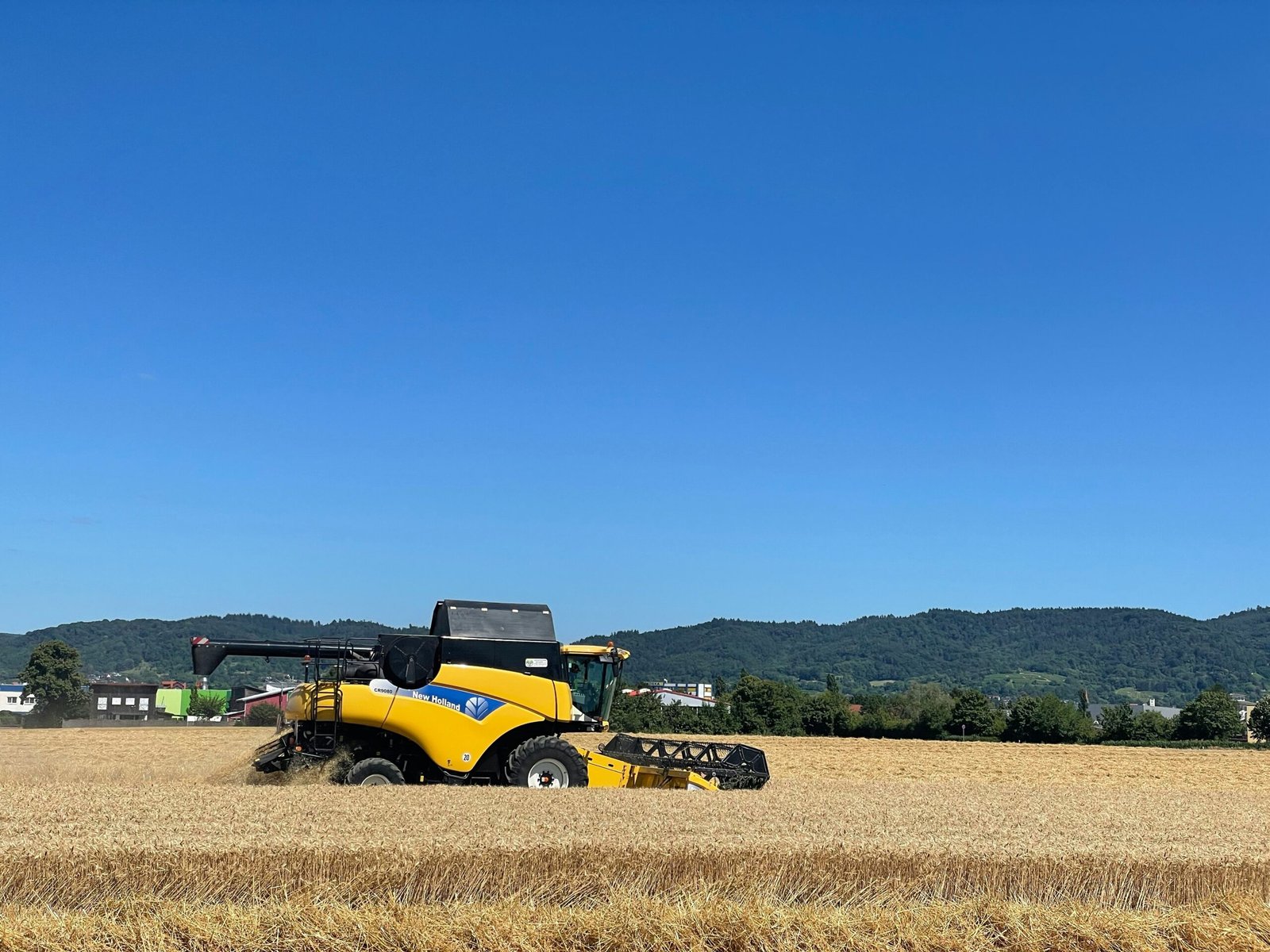Introduction: Setting the Context
Africa’s agriculture sector is at a pivotal juncture. Traditionally characterized by low productivity, limited access to innovative tools, and often facing the adverse impacts of climate change, the sector has been met with numerous challenges. Economically, many African farmers struggle with inadequate financial support structures, restricting their ability to invest in modern farming techniques. Additionally, unpredictable weather patterns and deteriorating soil quality further exacerbate the difficulties in achieving stable and sustainable agricultural output.
In recent years, there has been a growing recognition of the pressing need for an agro revolution in Africa. This paradigm shift is not just about enhancing output but also about transforming agricultural practices to ensure sustainability, resilience, and economic viability. Central to this revolution is the incorporation of advanced technologies—ranging from satellite imaging and precision farming to blockchain for supply chain transparency and mobile platforms for market access.
Technology’s potential role in this transformation cannot be overstated. By leveraging tools such as Internet of Things (IoT) sensors, AI-driven analytics, and drone technology, farmers can gain unparalleled insights into crop health, soil conditions, and optimal planting times. Moreover, mobile technology can bridge the gap between farmers and markets, providing critical information and financial services through digital platforms.
As we set the stage for discussing the myriad of opportunities and solutions that technology brings to the table, it is essential to acknowledge both the challenges and the transformative potential of an agro revolution. This revolution promises not only to boost productivity and efficiency but also to create a more resilient and inclusive agricultural ecosystem, capable of withstanding the modern challenges faced by African farmers.
Emerging Technologies in Agriculture
As Africa embraces the agro revolution, several emerging technologies are transforming traditional farming methods into more efficient, productive, and sustainable practices. These innovations are not only driving increased agricultural output but also offering solutions to some of the continent’s most pressing farming challenges. Key among these technologies are precision farming, drone technology, the Internet of Things (IoT), Artificial Intelligence (AI), and data analytics.
Precision farming is fundamentally about managing variations within fields to grow more food using fewer resources. This approach leverages Geographic Information System (GIS) tools, soil sensors, and GPS-guided tractors to optimize field-level management concerning crop farming. By analyzing detailed real-time data, farmers can make informed decisions about planting, irrigation, and harvesting, thereby increasing yield and reducing waste. In Africa, precision farming can significantly improve the efficiency of smallholder farmers, who are central to the continent’s agricultural landscape.
Drone technology offers another leap forward for African agriculture. Equipped with multispectral and thermal sensors, drones can monitor crop health, soil conditions, and weather patterns. These unmanned aerial vehicles enable rapid and precise application of fertilizers and pesticides, ensuring that resources are used where they are most needed. In regions with inefficient road networks, drones can provide indispensable support in surveying and delivering goods, thus playing a critical role in enhancing productivity.
The Internet of Things (IoT) connects various farming devices to the internet, facilitating seamless communication and automation. IoT-enabled sensors can track soil moisture, nutrient levels, and environmental conditions, relaying data in real-time to farmers’ smartphones or computers. This connected ecosystem aids in early detection of potential issues, allowing for timely interventions. For African farmers, IoT represents an opportunity to adopt smart farming techniques without requiring extensive technological expertise.
Artificial Intelligence (AI) in agriculture encompasses machine learning algorithms that analyze historical data to predict future trends. AI can optimize crop selection, pest control, and supply chain management by providing actionable insights derived from vast amounts of data. For example, predictive models can suggest the best planting times and crop varieties based on climate patterns, helping farmers to better cope with the impacts of climate change.
Data analytics further amplifies these technologies by turning complex datasets into understandable and practical information. Advanced analytic tools enable farmers to gain a comprehensive understanding of their operations, identifying inefficiencies and uncovering opportunities for improvement. In Africa, where data collection and utilization practices are still evolving, embracing data analytics can lead to breakthroughs in productivity and market access.
In summation, the integration of these emerging technologies into African agriculture holds immense potential. By revolutionizing traditional farming practices, they can drive the agro revolution towards greater efficiency, sustainability, and profitability, ultimately securing food supply and economic growth for the continent.
“`
Precision Agriculture: Increased Efficiency and Productivity
Precision agriculture represents a transformative approach in the farming sector, utilizing advanced technologies to optimize crop production and resource management. At its core, it integrates high-tech tools and data analytics to make farming practices more efficient and productive. This method relies heavily on GPS-guided equipment, soil sensors, and comprehensive data management systems to enhance the precision of farming operations.
One of the pivotal technologies in precision agriculture is the use of GPS-guided machinery. These systems enable farmers to plant crops with high accuracy, reducing wastage of seeds and fertilizers, and ensuring uniform crop growth. Furthermore, GPS technology can help in mapping fields for variable rate applications, where inputs are adjusted based on specific site conditions, thus boosting productivity and resource use efficiency.
Soil sensors are another critical component in precision agriculture. These sensors provide real-time data on soil conditions, including moisture levels, temperature, and nutrient content. By analyzing this data, farmers can make informed decisions regarding irrigation and fertilization, tailoring their practices to the specific needs of their crops. This targeted approach not only enhances crop yields but also conserves water and reduces environmental impact.
Data management systems play a crucial role in collecting and analyzing the vast amounts of data generated through various technologies. These systems enable farmers to monitor their operations continuously, detect anomalies, and implement corrective measures promptly. The integration of data from different sources allows for better decision-making and strategic planning, ultimately leading to increased efficiency and productivity.
Several African farms have successfully adopted precision agriculture technologies, demonstrating their potential for revolutionizing the agricultural landscape. For instance, the use of GPS-guided tractors and soil sensors on certain maize farms in Kenya has led to a significant increase in yield. Similarly, in South Africa, data management systems have helped wine grape growers manage their vineyards more effectively, resulting in higher-quality produce and improved profitability.
These examples highlight the promising outcomes of implementing precision agriculture in Africa. By embracing these technologies, African farmers can overcome challenges such as resource constraints and environmental variability, paving the way for a more sustainable and productive agricultural future.
Improving Farm Management with Mobile Technology
In recent years, mobile technology has significantly transformed farm management in Africa. Mobile applications now serve as a crucial tool for farmers, providing essential information that helps optimize agricultural practices. These digital platforms offer access to real-time market information, enabling farmers to make informed decisions on when and where to sell their produce to maximize profits. Additionally, weather forecast apps have become indispensable, allowing farmers to plan their activities more effectively and mitigate the impact of adverse weather conditions.
One of the primary benefits of mobile technology in agriculture is the availability of farming advice. Mobile apps created by agricultural experts and organizations offer tips and best practices on crop management, pest control, and soil health. Farmers can easily access this information, leading to improved yields and more sustainable farming practices. For instance, applications like mFarms in Ghana and iCow in Kenya provide a platform for farmers to receive tailored advice directly to their phones, enhancing their productivity and efficiency.
Moreover, mobile platforms have also revolutionized financial transactions within the agricultural sector. Mobile money services, such as M-Pesa in Kenya, facilitate easy and secure transfer of funds, enabling farmers to participate in financial activities that were previously inaccessible. Through these services, smallholder farmers can now receive payments for their produce directly to their mobile wallets, enhancing their economic stability.
Access to micro-loans through mobile technology has been another game-changer. Farmers can now apply for and receive small loans via mobile platforms, which helps them invest in seeds, fertilizer, and other inputs required for farming. This ease of access to credit has enabled many farmers to scale their operations and improve their livelihoods. Programs like M-Shwari in Kenya and Umurenge SACCOs in Rwanda highlight how mobile credit innovations can empower farmers to expand their agricultural activities.
These examples illustrate the profound impact of mobile technology on farm management across Africa. By harnessing the power of mobile phones, African farmers are breaking barriers and accessing resources that open up new opportunities for growth and development in the agricultural sector.
Role of Biotechnology in Crop Improvement
Biotechnology has emerged as a pivotal force in the quest to revolutionize agriculture in Africa, particularly in the realm of crop improvement. The utilization of modern biotechnology techniques such as genetic modification has led to the development of crops that are more yields-efficient and resilient. Through genetic engineering, crops have been designed to resist pests, tolerate herbicides, and sustain adverse climatic conditions, contributing significantly to agricultural productivity.
One notable area where biotechnology has had a profound impact is in the creation of genetically modified (GM) crops. These GM crops are cultivated to possess specific traits such as pest resistance and drought tolerance, which are particularly crucial for African agriculture, where these factors impinge heavily on crop yields. For instance, Bt cotton, a genetically modified strain that carries a gene from the bacterium Bacillus thuringiensis, has shown significant success in regions like Burkina Faso, drastically reducing the need for chemical pesticides and increasing cotton yields.
Furthermore, seed technologies specifically tailored to African climates have transformed the agricultural landscape. Innovations like drought-tolerant maize and biofortified sorghum and millet have equipped farmers to not only achieve better yields but also enhance the nutritional value of their produce. The advent of biotechnology in seed development has equipped smallholder farmers with tools to increase resilience against both biotic and abiotic stresses, forming a cornerstone for food security on the continent.
However, the deployment of biotechnology in crop improvement is not devoid of ethical and regulatory considerations. Concerns regarding the environmental impacts and biosafety of genetically modified organisms (GMOs) necessitate stringent regulatory frameworks. African countries are increasingly setting up regulatory bodies to oversee the safe application of biotechnology, ensuring that benefits are harnessed without compromising ecological integrity. Agencies like the African Union Development Agency (AUDA-NEPAD) have been instrumental in developing guidelines to streamline biotechnology integration in agriculture.
In reaping the benefits of biotechnology, it’s essential to balance innovation with ethical standards and robust regulation. Success stories from various African nations underscore the potential for biotechnology to bridge the gap between subsistence farming and commercial agriculture, thereby spearheading a transformative Agro Revolution on the continent.
The Impact of Drone Technology on Agricultural Practices
Drone technology is rapidly transforming agricultural practices in Africa, offering a range of benefits from surveying farmlands to monitoring crop health and even planting seeds. One of the primary advantages of drones is their ability to provide precise aerial data that can be used to create detailed maps of farmlands. These maps assist farmers in optimizing their land use, enabling more accurate planning for planting, irrigation, and harvesting. This aerial perspective ensures that resources are used more effectively, leading to increased crop yields.
Monitoring crop health is another critical application of drone technology. Drones equipped with multispectral cameras can capture images that highlight the health of crops. These images can help in detecting signs of disease, pest infestations, and nutrient deficiencies at an early stage. By identifying these issues promptly, farmers can take targeted actions to address them, thereby reducing crop losses and improving overall farm productivity. This proactive approach is not only cost-effective but also minimizes the environmental impact of farming by reducing the need for blanket pesticide and herbicide applications.
In addition to surveying and monitoring, drones are also being utilized for planting seeds. This method, known as aerial seeding, involves drones dropping seeds onto prepared soil. This practice is proving especially beneficial in reforestation projects and areas difficult to reach with traditional farming equipment. Aerial seeding with drones is faster and less labor-intensive, providing a scalable solution for large-scale planting initiatives.
Drone technology’s adoption by African farmers is on the rise, supported by various pilot programs and companies pioneering this innovative approach. Companies such as Aerobotics in South Africa and TechShelta in Ghana are at the forefront of this revolution. Moreover, international collaborations and governmental support are further bolstering the implementation of drone technology in agriculture across the continent.
Overall, the integration of drone technology in African agriculture marks a significant step towards increased efficiency, cost savings, and sustainable farming practices, heralding a substantial leap forward in the agro revolution.
Financial Technology (Fintech) and Agricultural Financing
Financial technology, commonly known as fintech, is playing a transformative role in bridging the financial gap faced by African farmers. Historically, these farmers have encountered significant barriers in accessing conventional banking services, primarily due to their remote locations and the perceived high-risk nature of agricultural investments. However, the advent of fintech solutions is gradually changing this dynamic, offering a more inclusive financial landscape.
One of the critical avenues through which fintech is enhancing agricultural financing is digital banking. Digital banks and mobile money platforms are making it easier for farmers to access financial services such as savings accounts, loans, and insurance. Services like M-Pesa in Kenya and Paga in Nigeria have revolutionized how farmers manage their finances, reducing reliance on cash transactions, and providing a secure method for handling money.
Micro-financing platforms are another fintech innovation impacting African agriculture. These platforms facilitate access to small loans with favorable terms, tailored specifically for the needs of farmers. Companies like FarmDrive in Kenya and Esoko in Ghana use data analytics to assess risk and creditworthiness, thereby providing loans to farmers who would otherwise be excluded from traditional banking services. This accessibility to credit has enabled many farmers to invest in better seeds, fertilizers, and farming equipment, significantly boosting productivity.
Blockchain technology is also emerging as a powerful tool in agricultural financing. By ensuring transparency and traceability, blockchain helps in building trust among stakeholders. In Zambia, the technology is being used in initiatives like AgriLedger, where it supports the tracking of agricultural products from farm to market. This not only improves market linkages but also helps in securing fair prices for the farmers. Moreover, smart contracts facilitated by blockchain automate payments to farmers, reducing the delays and uncertainties associated with traditional transactions.
Case studies from different parts of Africa illustrate the impact of fintech on agriculture. For example, in Uganda, the digital platform EzyAgric equips farmers with financial services and market information through its mobile app. Similarly, in Senegal, the digital wallet platform Sora finances farmers by pooling resources from local communities.
Through these fintech innovations, African farmers are not just gaining access to capital but are also learning and adopting more efficient farming practices. This collective transformation underscores the critical role of fintech in the ongoing agro revolution in Africa.
Conclusion: The Future of Technology in African Agriculture
Throughout this exploration of technology’s prospects in revolutionizing agriculture in Africa, it has become evident that the sector stands on the brink of tremendous transformation. From precision farming to IoT-enabled devices, technological innovations can significantly enhance agricultural productivity, improve resource efficiency, and foster sustainable farming practices across the continent. Such advancements not only offer solutions to traditional challenges but also create new opportunities for growth and development.
However, the successful integration of these technologies hinges on several critical factors. Firstly, the development of robust infrastructure is essential. This includes both physical infrastructure such as transportation networks and digital infrastructure like broadband connectivity. Without these fundamental structures, the adoption of sophisticated agricultural technologies will remain limited.
Equally important is policy support from governments across Africa. Proactive and supportive policies can drive innovation, provide incentives for technology adoption, and create a conducive environment for agritech startups to flourish. Policymakers need to prioritize agricultural technology in their agendas, ensuring that regulatory frameworks evolve in tandem with technological advancements.
Investment is another crucial pillar. There is a need for substantial financial commitments from both public and private sectors to facilitate research and development, pilot projects, and the scaling up of successful technologies. Investment in education and training is equally important to equip farmers with the necessary skills to utilize new technologies effectively.
With concerted efforts in these areas, the future of technology in African agriculture looks promising. The integration of modern technologies can pave the way for a more resilient agricultural sector, capable of withstanding climate variations and ensuring food security for millions. The synergy between advanced technology and traditional farming knowledge holds the potential to drive sustainable agricultural development, ultimately contributing to economic growth and improving livelihoods across Africa.


